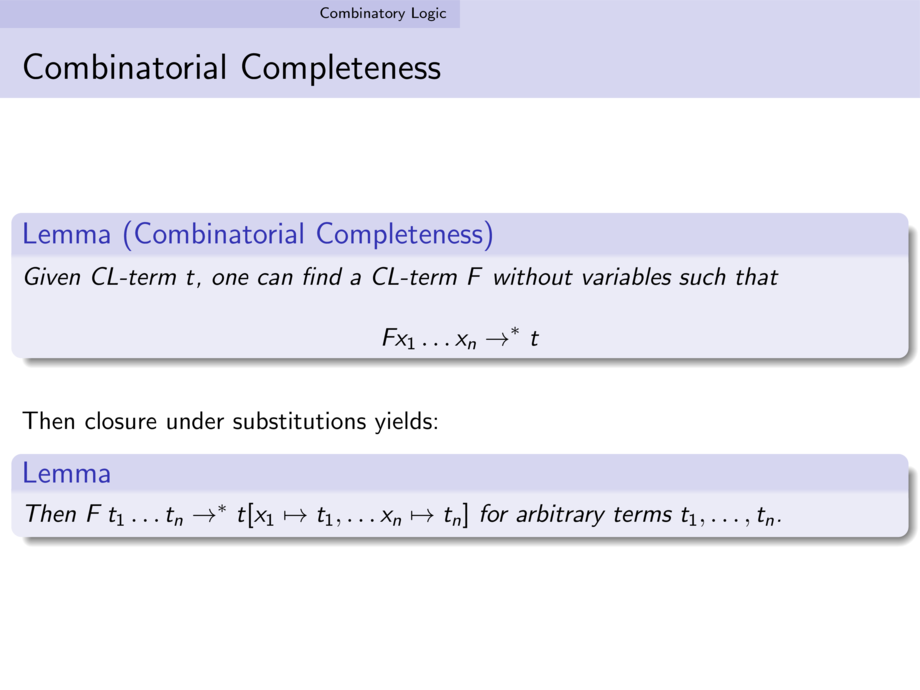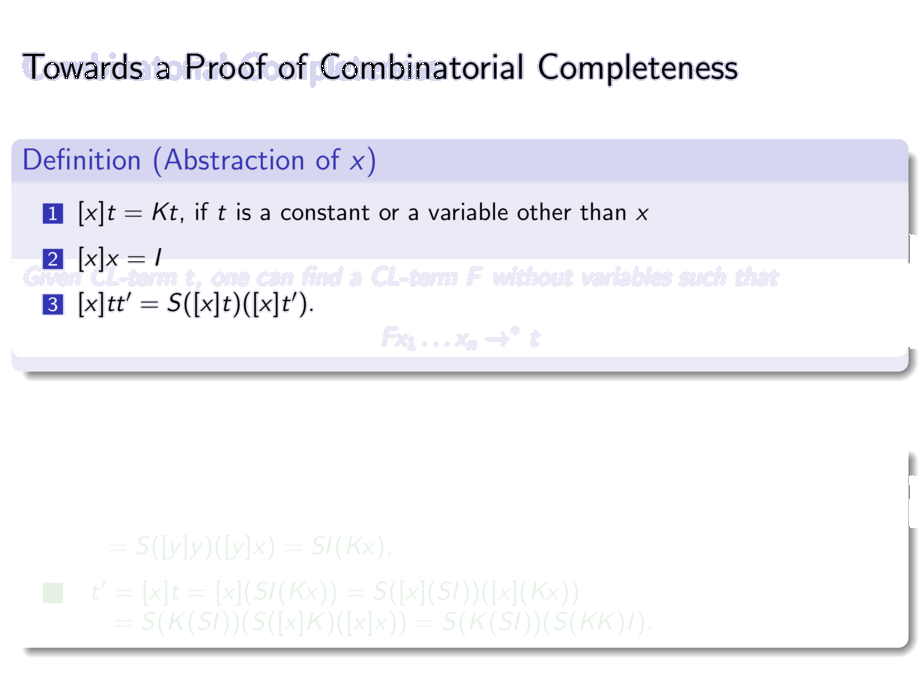



































































































30/129
\begin{frame}
\frametitle{Towards a Proof of Combinatorial Completeness}
\begin{definition}[Abstraction of $x$]
\begin{enumerate}
\item $[x]t= Kt$,
if $t$ is a constant or a variable other than $x$\\
\item $[x]x= I$
\item $[x]tt'= S([x]t)([x]t')$.
%, if (i) does not apply
\end{enumerate}\pause
For $[x_1]([x_2](\ldots ([x_n]t)\ldots ))$ we will write $[x_1x_2\ldots x_n]t$
\end{definition}
\pause
Hint: $[x]t= Kt$ can also be used if $t$ does not contain $x$.
\pause
\begin{example}
Let $t= [y]yx$ and $t'= [xy]yx$. Then
\begin{enumerate}
\item $
\begin{array}[t]{l}
t
\pause= S([y]y)([y]x)
\pause= SI(Kx),\pause
\end{array}
$
\item<6-> $
\begin{array}[t]{ll}
t'
\pause= [x] t
\pause= [x](SI(Kx))
\pause= S([x](SI))([x](Kx))\\
\ \ \pause= S(K(SI))(S([x]K)([x]x))
\pause= S(K(SI))(S(KK)I).
\end{array}
$
\end{enumerate}
\end{example}
\end{frame}

